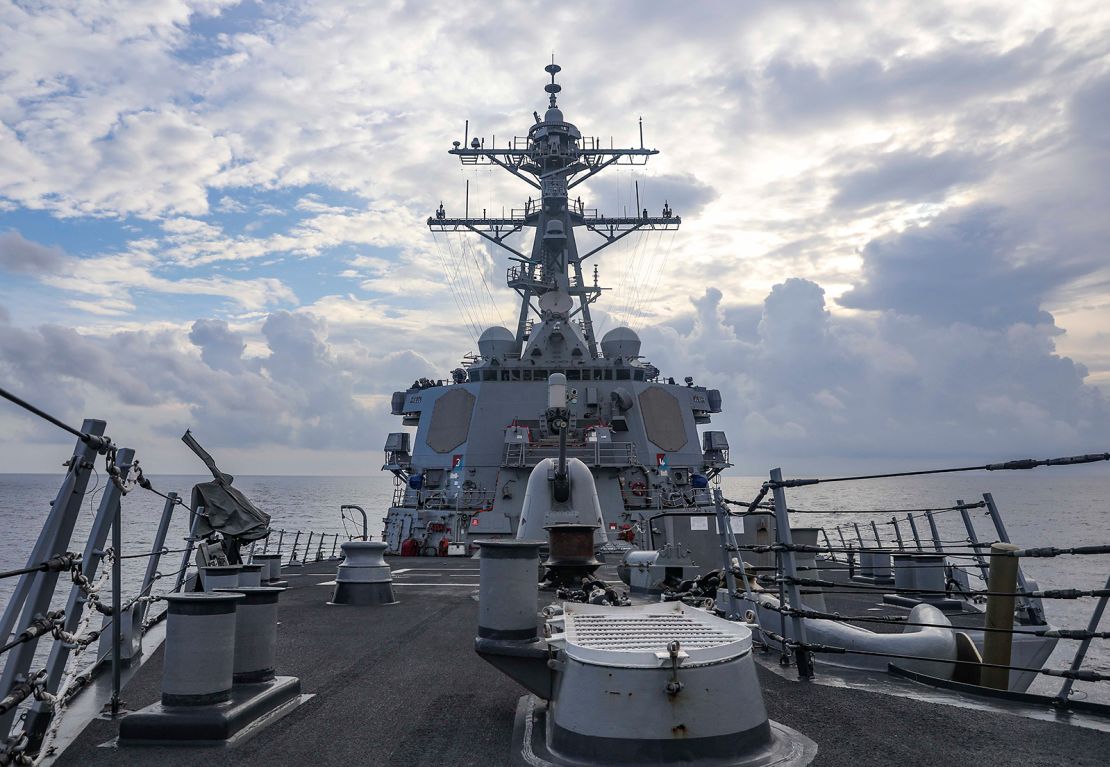United States Secretary of State Antony Blinken has reaffirmed the US’ commitment to defend the Philippines’ armed forces from attack in the South China Sea, under a 70-year-old mutual defense treaty.
Blinken made the comments Sunday, in a statement marking the fifth anniversary of a ruling by an independent arbitration tribunal rejecting China’s expansive territorial claims over the waterway, siding with the Philippines.
Tensions in the South China Sea, which is also contested by Brunei, Malaysia, Taiwan and Vietnam have ratcheted up this year, with Manila accusing Beijing of trying to intimidate its coast guard vessels, as well as sending its so called “maritime militia” to crowd out Philippine fishing boats.
The US’ top diplomat said the US could invoke the US-Philippine mutual defense pact in the event of any Chinese military action against Philippine assets in the region.
“We also reaffirm that an armed attack on Philippine armed forces, public vessels, or aircraft in the South China Sea would invoke US mutual defense commitments under Article IV of the 1951 US-Philippines Mutual Defense Treaty,” Blinken said.

Blinken also called on the Chinese government to “abide by its obligations under international law (and) cease its provocative behavior” in the South China Sea.
The 2016 ruling by the Permanent Court of Arbitration at the Hague dismissed China’s claims to the South China Sea outright, while making clear that China was infringing on Philippine sovereignty through activities such as island-building in Manila’s exclusive economic zone (EEZ).
Beijing has disavowed the tribunal ruling and continued to build up and militarily reinforce its positions in the South China Sea. It claims the US and other countries are increasing tensions in the region by sending their warships there in violation of its sovereignty.
Washington counters that its naval presence in the South China Sea supports freedom of navigation under international maritime law.
Underscoring the US stance, the guided-missile destroyer USS Benfold performed a freedom on navigation operation (FONOP) near the Paracel Islands in the northwestern part of the South China Sea on Monday, the US Navy’s 7th Fleet said in a statement.
This islands, referred to as the Xisha chain in China, are also claimed by Vietnam and Taiwan, but China has controlled them since the 1970s.
US Navy spokesperson Lt. Mark Langford said Monday’s operation challenged the claims by all three parties.

“This freedom of navigation operation … upheld the rights, freedoms, and lawful uses of the sea recognized in international law by challenging the unlawful restrictions on innocent passage imposed by China, Taiwan, and Vietnam and also by challenging China’s claim to strait baselines enclosing the Paracel Islands,” Langford said.
China said it put forces in place to “warn and drive away” the US destroyer, which it said violated its sovereignty.
The US last challenged claims in the Paracels in May.
“This is another ironclad evidence of the US’ aggressive navigational hegemony and militarization of the South China Sea,” PLA Air Force Col. Tian Junli, spokesperson for the PLA’s Southern Theater Command, said in a statement after Monday’s US FONOP.
“Facts show that the United States is an out-and-out ‘South China Sea security risk maker,’” Tian said.
In his statement Sunday, Blinken called on China to “take steps to reassure the international community that it is committed to the rules-based maritime order that respects the rights of all countries, big and small.”
“Nowhere is the rules-based maritime order under greater threat than in the South China Sea. The People’s Republic of China (PRC) continues to coerce and intimidate Southeast Asian coastal states, threatening freedom of navigation in this critical global throughway,” the US secretary of state said, referring to China by its official name.
He called on China to “take steps to reassure the international community that it is committed to the rules-based maritime order that respects the rights of all countries, big and small.”
Blinken said the US stands behind the 2016 ruling against China, as reiterated last year by then-Secretary of State Mike Pompeo, who said at the time that “Beijing’s claims to offshore resources across most of the South China Sea are completely unlawful, as is its campaign of bullying to control them.”
In response to Pompeo’s comments, the Chinese Embassy in Washington accused the US of “distorting” international law and “exaggerating” the situation in order to “sow discord.”




















